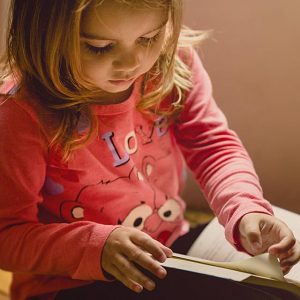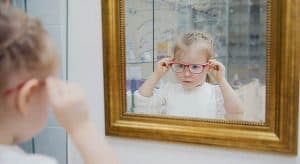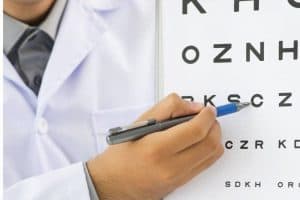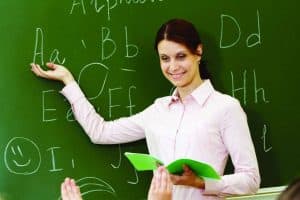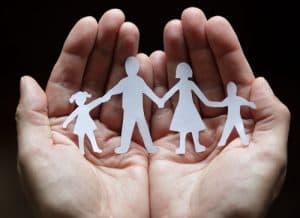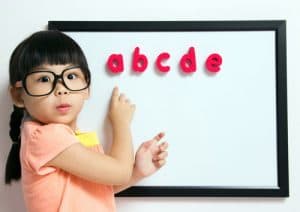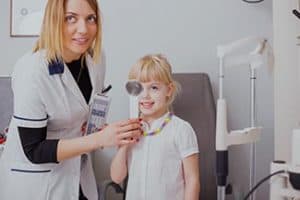What is Visual Information Processing?
Have you been told your child has difficulties with their Visual Information Processing? How can optometrists help? Visual processing describes the way the brain processes
Read More2021 Update: Vision Therapy for Eye Tracking
Over 30% of those diagnosed as having dyslexia have an eye tracking deficit. When a child has a visual processing or perceptual disorder it hinders
Read More2021 Update: Writing and Spelling
Your child’s vision might be clear, but do they also have clear handwriting and accurate spelling? Vision is not just ‘20/20 sight’ but is also
Read More2021 Update: Vision Therapy Research
Vision therapy is an evidence-based science with over 260 published articles on its effectiveness. Are looking for published research on VT? Provided below are just
Read More2021 Update: Parent’s Checklist for Vision Therapy
Does your child struggle in school and you’re not sure why? Up to 25 in every 100 children are affected by vision problems — that’s
Read More2021 Update: Vision Therapy for Learning
Research shows 25 percent of children have a significant vision problem that impacts their learning, according to the American Optometric Association (AOA). Up to 80 percent of all learning comes through the visual pathways. There are 17 visual skills that are necessary to perform at school and the office, these are all critical for learning.
Read More2021 Update: Reading Fluency
80 percent of classroom learning is visual, meaning that any problems in the visual system can impact a child’s reading fluency. If a child has
Read MoreIs there a Link between Visual Skills and Reading?
We thank Dr Dan Fortenbacher for the context of this blog. This is based on Dr Dan’s blog on the VisionHelp website; ‘The importance of
Read MoreVision and Autism: Part 2
Author: Randy Schulman, MS, OD, FCOVD As vision is key to so many other systems, vision intervention, such as vision therapy, can have a profound
Read MoreVision and Autism: Part 1
Author: Randy Schulman, MS, OD, FCOVD This year marks my 30th year as an optometrist and during all of those years I have seen thousands
Read MoreWhat Are Visual Efficiency Problems?
Poor visual efficiency skills can negatively impact performance in school, at the office, and on the sports field. Understanding and knowing what to look out for can help with early detection and treatment of visual problems – leading to improved school grades and sports achievements.
Read MoreBuilding Self Esteem
Too many children are labelled as lazy learners, poor students, learning difficulty and even dyslexia and ADHD, when it could be an undiagnosed vision problem.
Read MoreWhich Eye Conditions Can Affect Learning?
According to the College of Optometrists In Vision Development (COVD), 25% of all children have an undiagnosed vision problem impacting their school grades. If your
Read MoreVision Therapy or Occupational Therapy?
25% of all children have a vision problem significant enough to affect their performance in school. Parents will do almost anything to get their child
Read MoreVision Therapy for Math: Success Stories
Personal stories from adults and children who improved their math scores following Vision Therapy. *Names have been changed for privacy protection. Click here for a
Read MoreVision Therapy for Spelling: Success Stories
Real life stories of children with spelling difficulties, where an underlying visual problem was diagnosed and treated with Vision Therapy. *Names have been changed for
Read More8 Vision Therapy Myths and Facts
Vision therapy is a specialized program prescribed for the treatment of vision conditions that cannot be fully treated with eyeglasses or contact lenses. Unfortunately, there
Read MoreThe Power of Visualization
Author: Dr. Lynn F. Hellerstein Hellerstein and Brenner Vision Center Visualization is an essential key to a child’s academic success. Does your child struggle in
Read MoreSmart in Everything… Except School
Author: Dr. Denise Smith The Center for Vision Development, Austin TX Do you know a child who is smart in everything but school? These children
Read MoreVision Therapy for “Slow Learners”: Success Stories
Personal stories from parents of children labeled as “slow learners” when an underlying vision problem was causing their learning difficulties. *Names have been changed for
Read MoreVision Therapy for Self Confidence: Success Stories
Real life stories of children who struggled with self confidence as a result of an underlying vision problem. *Names have been changed for privacy protection.
Read MoreVision and Learning Difficulties FAQs
These are the ten most frequent questions asked to vision therapy eye doctors.
You may easily find answers to your questions. If you still have questions, contact your nearest eye doctor experienced in children’s vision and vision therapy.
Optical and Contact Lenses
Buying your new pair of eyeglasses can be fun. The quality and range of lenses are always increasing. Considering contact lenses or laser surgery?
Read MoreExophoria and Esophoria
Has your child been diagnosed with exophoria or esophoria? Both of these may appear as an eye turn, and can be successfully treated with eyeglasses and/or vision therapy.
Read MoreVision for School
Is your child not reaching their potential at school? For a child to succeed in school they need excellent vision and strong visual skills, including eye tracking, focusing, binocular vision and visual processing. These skills can be enhanced with the correct eyewear and vision therapy.
Read MoreWhy Is My Child Color Blind?
What is color blindness? Color blindness is not blindness at all, rather a condition that prevents a person from distinguishing certain colors from each other.
Read MoreOptometric Management of Dyslexia
Comprehensive eye exams are essential if your child has been diagnosed with dyslexia.
Children diagnosed with dyslexia could have an undiagnosed visual problem and may respond well to options such as eyeglasses or vision therapy.
What Are ‘Low Plus’ Lenses?
Why did your eye doctor prescribe ‘low plus’ lenses for your child? Low plus lenses, like their name suggests, have relatively low lens powers usually +0.50, +0.75 or +1.00. These powers are considered ‘low’, but may have a considerable benefit for your child’s reading and school grades.
Read MoreAre School Vision Screenings Reliable?
Many schools conduct vision screenings as a service to try to identify vision problems, but are they reliable? The simple answer is, no. These vision screenings are very limited, and are not a substitute for a comprehensive eye examination performed by an eye doctor.
Read MoreVision and Sensory Processing Disorder
Have you been told your child has a sensory processing disorder (SPD)? Sensory processing disorders (SPD) can be life-changing, but many eye doctors can now offer you a range of options to best manage your child and allow them to maximize their engagement with the world.
Read MoreVision and Non-Verbal Learning Disorder (NVLD)
Guide to Non-Verbal Learning Disorder (NVLD). NVLD can significantly impact a child’s life, however many eye doctors can provide the solution you have looking for.
Read MoreVision and Gifted Learning Difficulty
Have you been told your child has Gifted Learning Difficulty (GLD)? GLD can be a mystery— how can a child be gifted intellectually, yet still experience learning difficulties? The answer often lies in the diagnosis of a vision problem, most commonly caused by poor visual skills.
Read MoreVision Therapy Quiz
Could a vision problem be impacting your child’s school performance?
Take a quick quiz to find out.
Take a quick quiz to see if your child could benefit with vision therapy. If your child is not performing to their academic potential, they may be suffering from a vision problem. According to experts, up to 50 percent of children with learning difficulties have a vision disorder that is impacting their ability to learn.
Read MoreNAACP: Vision and Learning Statement
NAACP Passes Resolution on Vision, Learning, and High-Risk Populations at its 100th Anniversary National Convention, New York, NY 2009 PR Newswire, September 29, 2009 Charles
Read MoreA Teacher’s Guide to Vision
As an educator, it may surprise you to discover that many students that show signs of a learning difficulty actually have an undetected vision problem. Teachers play a vital role in the future success of their students and are the most qualified professionals to notice any learning problems in the classroom. “It is estimated that more than ten million school age children suffer from vision problems that may cause them learning difficulties in school.” (National PTA)
Read MoreParent’s Checklist to Identify a Vision Problem
Is a vision problem impacting your child’s academic success or athletic performance?
Did you know that vision problems affect up to 25 in every 100 children – that’s at least six students in every class.
This checklist can be a useful tool for you to understand all of the behavioral and physical symptoms that your child is experiencing, and may help to facilitate the identification of a vision problem.
How Does Vision Affect Learning?
Since up to 80% of everything a child learns is derived through the visual pathways and their eyes, if there is any interference in their vision, a child may not develop to their maximum potential. There are 17 visual skills that are essential for learning.
Read MoreVision Therapy for Convergence Insufficiency: Success Stories
Real-life stories from parents of children who have successfully completed a vision therapy program for the treatment of Convergence Insufficiency. *Names of the children and
Read MoreVision and Learning Difficulties
Approximately 80 percent of all learning comes through the visual pathways. Any interference in the visual pathways can inhibit a child from performing to their maximum potential. According to the American Optometric Association (AOA) 25% of all children, or 1 in 4 students, have a vision problem significant enough to impact their learning.
Read MoreDoes My Child Have Dyslexia?
Has your child been diagnosed with Dyslexia? Since up to 80 percent of learning in school is acquired through vision, a child diagnosed with dyslexia may actually have an undiagnosed vision problem, causing difficulties with their academic performance.
Read MoreWhat Is Vision Therapy?
Vision therapy is a fully customized and personalized treatment program designed to improve and strengthen visual skills, and re-train the child’s visual system to interpret visual input with increased accuracy and ease.
Vision therapy is more than just simple eye exercises — it improves brain-eye communication, and the effective operation of the child’s visual system.
The aim of vision therapy is to enhance the visual skills — eye-tracking, focusing, convergence, eye-hand coordination, visual processing speed and more!
Eye Exams for Children
Eye doctors utilize specific clinical and diagnostic tools and assessments to determine your child’s eye health and visual abilities. Since many learning skills are dependent on the strength of visual skills such as binocular vision, accurate eye movements, the ability to see distant objects, etc., doctors recommend that children have their first eye exam at age 6 months.
Read More

